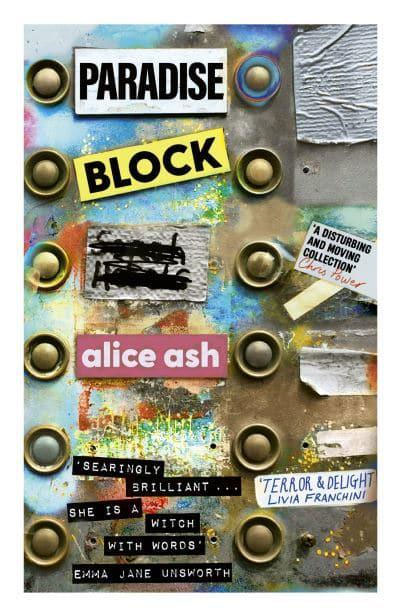
Paradise Block, Alice Ash (£8.99, Serpent’s Tail)
Paradise Block is hell, a surrealist or perhaps hyperreal world of poverty, depression, obsession and dysfunction. The characters in this short story collection struggle to work, pay the rent and relate to anyone; their lives – like these stories – spill into each other and into the town of Clutter where they live.
The tower block of the title is falling apart, despite attempts by the alcoholic caretaker to mend the lifts and (literally) fill the cracks. He has a pile of paper scraps with jobs to do written on them, but cannot bring himself to do the work required or even organise a bus and train trip to see his son, who lives with his ex-wife. The tenants around him breed and steal kittens, work (or not) on zero hours contracts in one of the town’s department stores, hide their disabilities from themselves and each other, live on eggs, discount store biscuits or thin air, lust after the doctor who keeps pornography on his computer, communicate by text and shouting. or do not say anything at all. Others hold the only conversations they ever have with delivery men or phone salesmen; and goodness knows what is going on with the Foxes in their damp dark basement.
If tenants manage to escape from Clutter and move elsewhere, or even have a day trip out, their past comes with them: the shadows darken, emotional and financial ties remain. Alcohol, nostalgia, delusion or self-abuse offer other forms of escape but only in the short-term. The reality remains damp stairwells, mouldy walls, empty cupboards, cold beds and the neighbours’ noise from next door.
This is a brilliant book, but also one of the most horrible set of stories I have ever read. A cover quote and some reviewers suggest the work is funny, but I found it intensely upsetting and moving in its strange and obsessive depiction of how others live. Through hyperbole and exaggeration, by focussing on the everyday and what is wrong with the world, Ash has documented and highlighted the (un)realities of how others live, in a way that no formal report or documentary can. This is not real life, but it allows us to imagine what the lives of the broken, unwanted and cast-aside is like, and provoke us into some kind of response against the world that allows it to happen.
Rupert Loydell
